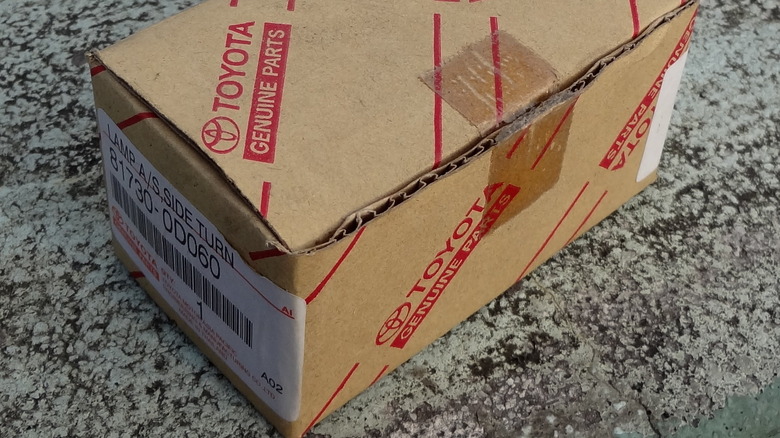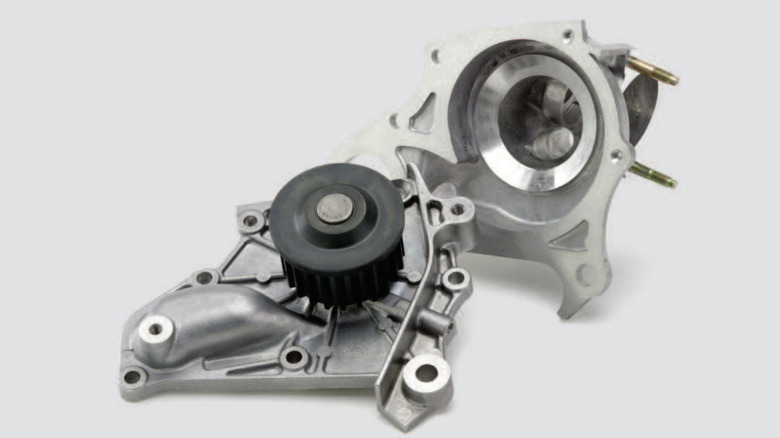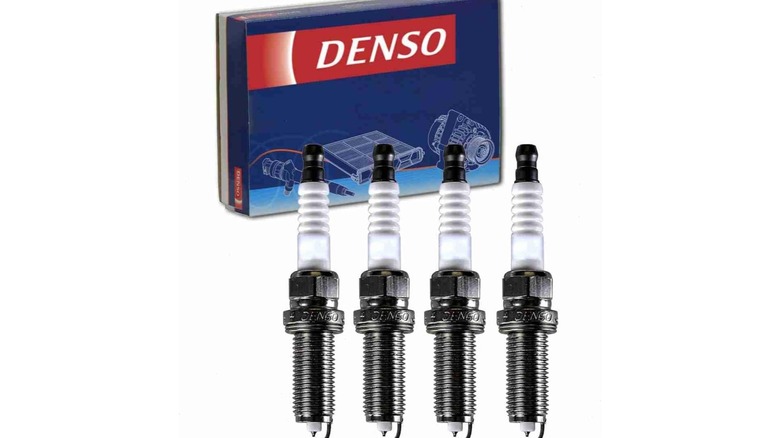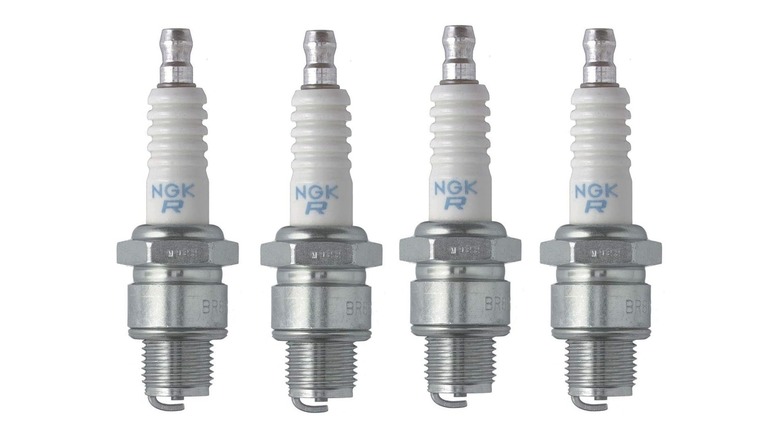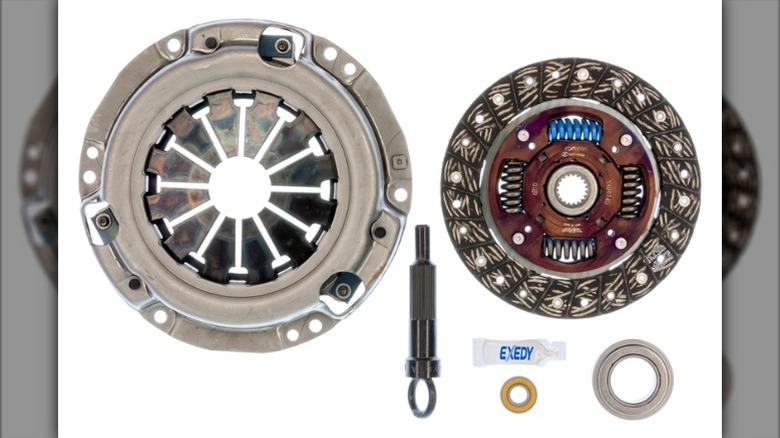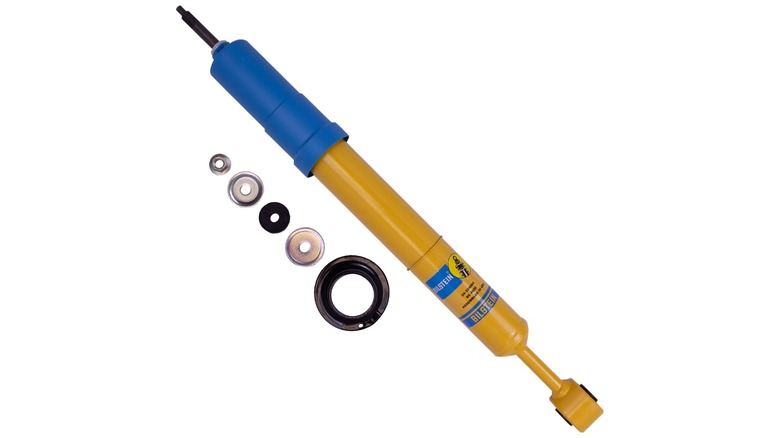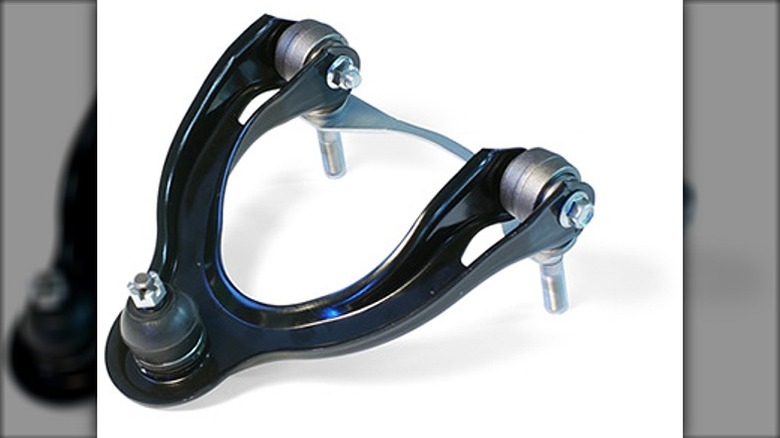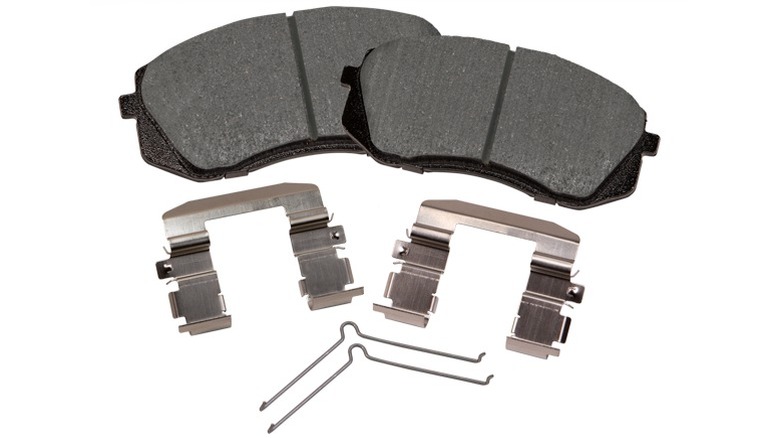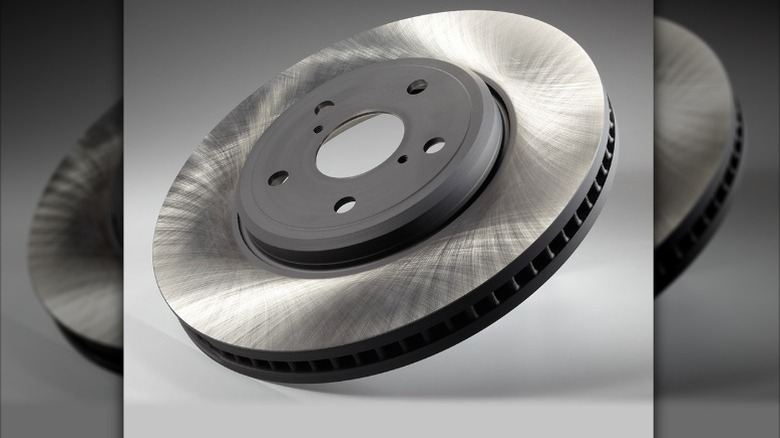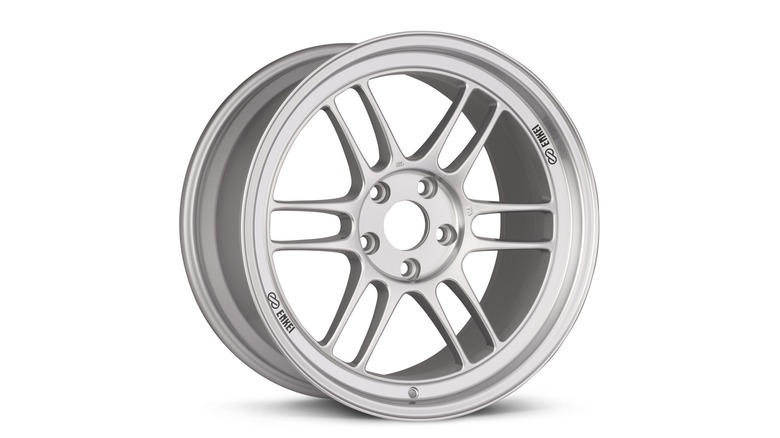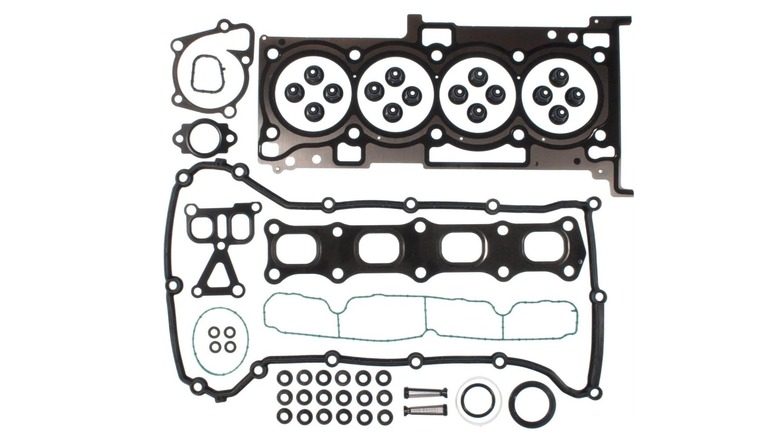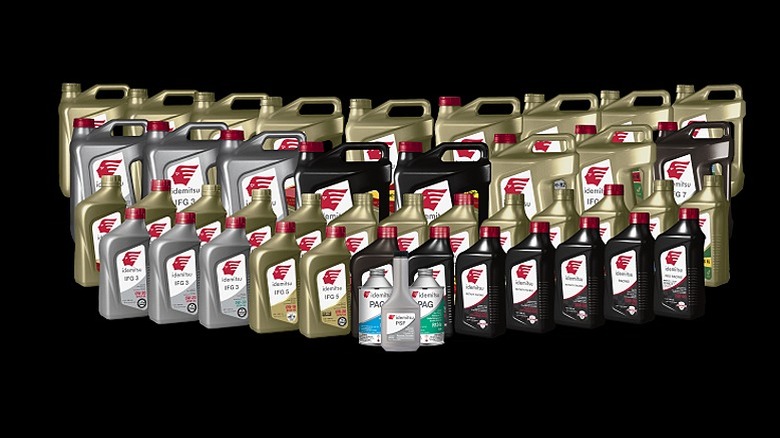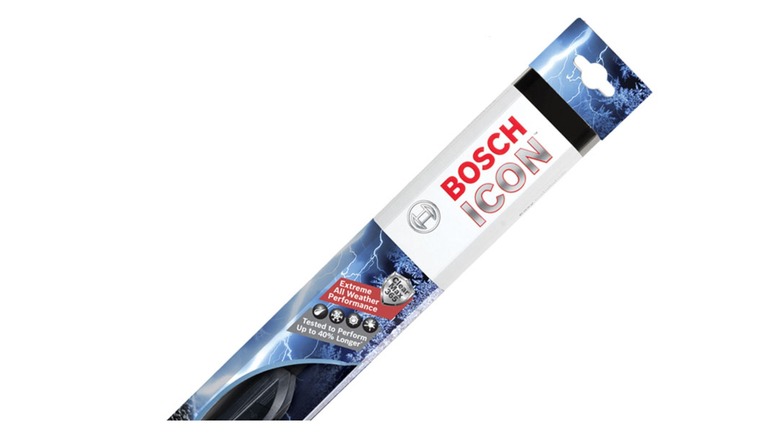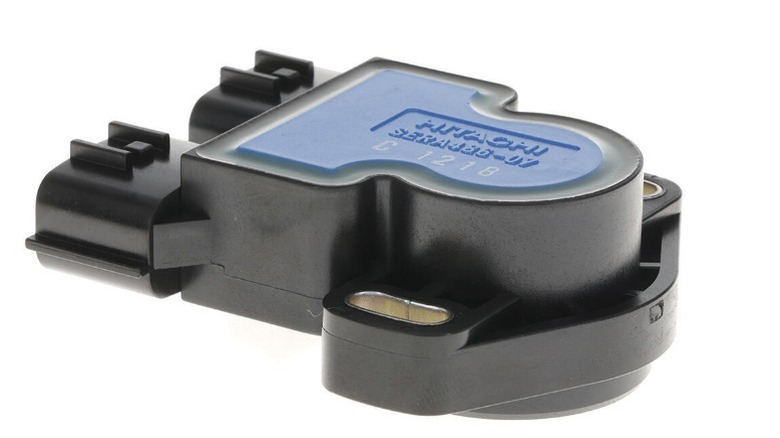13 Toyota Parts Brands That Deliver Without The OEM Price Tag
Let's bust a big myth right now. There's this idea floating around that the only way to preserve your Toyota's near-immortal status is to only use OEM parts. That's a great piece of marketing, but it's also a fantastic way to overpay. The reality? You can absolutely skip the dealer premium and still get fantastic quality — or even something better.
Here's the thing nobody tells you: Toyota is basically the world's pickiest parts shopper. It finds the best suppliers, negotiates sweet deals, then sticks its badge on everything and charges you triple. But those suppliers? They're still making killer parts under their own names (and selling them without the OEM price tag). Figure out which brands are Toyota's secret suppliers, add in the aftermarket heroes that have been crushing it for decades, and boom, you've cracked the code to reliable parts without the markup madness.
And you don't even have to do the legwork yourself. I've spent way too much time hunting down these hidden gems, chatting with gearheads, diving into forum threads at ungodly hours, and cross-referencing part numbers like some kind of automotive detective. The result? A hit list of brands offering Toyota-level dependability (sometimes better) without requiring a second mortgage. Here are the winners.
Aisin water pumps and timing components
If Toyota has a best friend, it's Aisin. These two go way back to the 1950s, when Aisin helped Toyota launch Japan's first automatic transmission, the Toyoglide. That little two-speed slushbox didn't just make driving easier, it also jump-started the modern Japanese car industry. Not bad for a first date, right?
Aisin transmissions were just the start. Since then, Aisin's been behind the curtain cranking out timing belts, water pumps, oil pumps ... all the boring but crucial parts that quietly keep Toyotas racking up six-figure odometer readings. Walk into a dealership, drop cash on a "Genuine Toyota" kit, and odds are you've just paid extra for something Aisin already made. Same great reliability, only this time with a corporate markup and maybe a free cup of stale coffee.
The beauty of going straight to Aisin for water pumps and timing components is simple: You get Toyota-level dependability without the sticker shock. Their kits are no-nonsense, built to last, and trusted by Toyota enthusiasts who would rather spend their cash on gas and road trips than replace parts that should've lasted the first time.
Denso spark plugs, ignition coils, and sensors
Denso is one of Toyota's favorite suppliers, but here's the plot twist: It openly admits its aftermarket parts aren't carbon copies of what Toyota gets. In fact, Denso executives have said they target about 85% to 90% of OEM specs for their aftermarket stuff. Before you freak out, that's not necessarily a bad thing.
The reason for the difference is pure business drama. When Toyota orders parts, it's basically micromanaging everything, auditing factories, setting crazy-specific requirements, and sometimes even owning the designs outright. Denso's aftermarket parts? The company gets to flex its engineering muscles without Toyota breathing down its neck.
For spark plugs, this freedom works in your favor. Denso's aftermarket Iridium and Platinum plugs often outlast and outperform what Toyota installs at the factory. The Iridium TT has the world's smallest electrode tip (the company loves bragging about this), while the U-Groove design is basically Denso flexing its engineering skills.
Same story with ignition coils and oxygen sensors. You're getting parts from the same brand that keeps Toyota's engines firing, just without Toyota's helicopter parenting. Denso knows how to make this stuff work because it's been doing it for Toyota for decades. It just gets to be a little more creative when its name is on the box.
NGK spark plugs and sensors
Every Toyota owner has had this debate at some point: Denso or NGK? It's like Coke versus Pepsi, except both will fire your engine instead of rotting your teeth. From Corollas to Tacomas, NGK has been the "other guy" in the conversation for decades, and honestly, sometimes the favorite.
NGK plugs have a reputation for being some of the best spark plugs around. The Iridium IX is a crowd favorite for sharper throttle response, while Laser Platinums just keep on ticking through highway miles like they've got something to prove. Even the cheap copper V-Power plugs get nods in older Toyotas because they hit hard, run hot, and don't make your wallet cry.
The appeal? NGK plugs don't overcomplicate things. You screw them in, turn the key, and your Toyota wakes up like it just had its first coffee of the day. No drama, no fuss, no "Why is my check engine light on again?" They're the definition of set-it-and-forget-it. So while NGK might not come in the Toyota box, ask any Toyota forum and you'll find a loyal fan club swearing NGK stuff is every bit as good.
Exedy clutch kits
Exedy is basically the clutch world's overachiever. It supplies manual clutches, flywheels, and powertrain components to all 11 vehicle manufacturers in Japan, which means it's literally keeping the entire country's stick-shift game alive. Talk about job security.
Founded in 1923 as Daikin Clutch, Exedy has been perfecting the art of "grab when you need it, let go when you don't" for over a century. The company hand-assembles its multi-plate clutches and torture-tests every single one for clamp load and release before it ships. That's why Exedy parts don't randomly detonate like some of the sketchy eBay kits your cousin swore would "work fine."
The fun part? Even the performance crowd sings its praises. Scroll a GR86 forum and you'll spot owners flexing about their Exedy "heavy duty" kits — some even borrowing WRX pressure plates — then casually mentioning they've survived a dozen hillclimbs with hard launches on semi-slicks and lived to tell the tale. That's the kind of endorsement you can't fake.
Bilstein shocks and struts
Bilstein has been perfecting ride quality since bell-bottoms were in style, and Toyota's been cashing in on that know-how for decades. Plenty of TRD models roll off the line already rocking Bilstein shocks, though you'll see a Toyota label slapped on instead.
The kicker? Those factory versions aren't always the same as what you'll pull off the shelf. Case in point: TRD Off-Road Tacomas are often mistaken for running Bilstein 4600s. Nice try, but no. The real 4600s come with a beefier body and stiffer valving, which means they'll outlast and out-muscle the factory-tuned setup.
That's Bilstein in a nutshell: It doesn't just play catch-up with OEMs; it laps them. Want stock-like comfort? The B4 series will reset the clock. Want sharper handling without rattling your fillings out? The B6 line is your sweet spot.
And if you're itching to turn your Toyota pickup truck into a trail-tackling bruiser, the 5100s and beyond are basically the Toyota owner's rite of passage. People brag about squeezing over 100,000 miles out of a set, and they're not exaggerating. Bottom line? If you're gonna roll Toyota tough, you might as well roll with the shocks that even Toyota can't improve on.
Sankei 555 suspension and steering parts
Sankei 555 has been in the game forever, and not just cranking out parts in a factory somewhere. It proves itself on the rally stages too. The name shows up year after year, bolted into some of the fastest rally cars that get beaten to death on gravel and tarmac and still claw their way onto podiums. That kind of track record says more than any marketing slogan ever could.
All of its parts are stamped "Made in Japan," and it doesn't compromise on quality. Sankei builds the nuts and bolts of suspension and steering, including ball joints, tie rod ends, rack ends, control arms, stabilizer links, pitman arms, and idler arms. Basically, the stuff that makes your steering feel tight and your suspension hold up without wandering all over the road.
Here's the rule of thumb: lower ball joints? Always OEM. That's a high-stress, safety-critical part, and Toyota's spec is the only thing you want holding your front wheels on. But for everything else, Sankei 555 is a sure bet. It has supplied Toyota before as OEM, and its aftermarket parts carry the same DNA.
Akebono brake pads
Akebono's been in the stopping game since 1929, back when Japan's entire auto industry could barely fill a Costco parking lot. Fast forward a century, and it's the go-to brake supplier for Toyota, Honda, Nissan, Ford, GM ... basically, anyone who doesn't want their customers reenacting "Thelma & Louise."
The name Akebono translates to "dawn" in Japanese, which sounds poetic, but its real legacy is keeping Toyota 4Runners, Camrys, and a laundry list of other models from plowing into curbs straight out of the factory. That factory pedigree carries right over into its aftermarket ProACT line, which is why Toyota owners trust it without blinking.
The ProACT Ultra-Premium pads are the definition of OEM-plus. They're smooth, quiet, and so clean your wheels will finally stop looking like chimney flues. The ceramic mix is rotor-friendly and can last up to 40% longer than standard pads. Sure, they may not outlast Advics in a contest of pure stubbornness, but here's the trade: better stopping power and no black dust coating your nice alloys. For most people, that's an easy win because showing off clean wheels beats bragging about 5,000 extra miles any day.
ADVICS brake rotors and pads
ADVICS is what happens when three Japanese heavy-hitters — Aisin, Denso, and Sumitomo Electric — decide to form a supergroup and drop the greatest hits in braking. With Toyota owning a chunk of Aisin, you could say this is basically Toyota's in-house brake squad, and yes, it's the one making the actual pads, rotors, calipers, boosters, and even brake fluid that roll out with your Toyota from day one.
ADVICS stands for "Advanced Intelligent Chassis Systems," which sounds like something out of a sci-fi flick, but really, it just means the company builds brakes that refuse to quit. Pop open a Toyota caliper and there's a good chance you'll spot ADVICS already living rent-free in there. So, when you grab its aftermarket parts, you're not downgrading. You're just cutting out the middleman and dodging the dealer markup.
Where it really flexes? Longevity. ADVICS is all about racking up miles. Its organic formula pads are engineered to squeeze out every last stop, making them the perfect fit if you care more about marathon mileage than showing off spotless wheels. It even brags about 46% longer pad life compared to standard OE, which is hilarious, because it is the OE. It's like the company is competing with itself and still winning.
Enkei rims
Enkei isn't just an aftermarket darling. It's Toyota's little secret. Peek under enough factory cars and you'll find its stamp hiding in plain sight, from early-2000s Camrys and Avalons to the GR Corolla. Even TRD Tundras have rolled off lots rocking Enkeis, with only the center caps ratting them out.
What makes the brand special? Enkei has been on a lifelong quest for the perfect wheel formula — light, stiff, and strong — since 1950. And it doesn't just talk the talk. These are the same wheels McLaren trusts in Formula 1, which means your Corolla on Enkeis is basically rubbing elbows with Lewis Hamilton's pit crew.
Then there's the RPF1, the wheel that practically built its own fan club. At just 17 pounds for a 17-inch rim, it's a diet plan your suspension will thank you for. Less unsprung weight, sharper turn-in, and enough durability to shrug off potholes and track curbs like they're minor speed bumps.
The secret sauce? Enkei's MAT process. Imagine regular casting, but on a spin cycle that realigns the metal grain structure. It's basically "forging lite" at a budget-friendly price. Add in some obsessive CAD simulations where it trims grams like it's cutting carbs before summer, and you've got wheels engineered down to the last ounce.
Mahle engine internals, gaskets, and filters
Mahle's been in the engine game since 1920, back when the auto industry was just a handful of workshops trying to figure out how to keep cars from grenading themselves. A hundred years later, it's leveled up into one of the world's top 20 automotive suppliers, with its parts quietly keeping Toyotas running smoothly mile after mile.
The company's specialty? The stuff inside the engine that does the heavy lifting — pistons, gaskets, filters, bearings, the works. It's the real deal, too, supplying OEM components directly to Toyota's factories. In fact, a lot of Toyota's head gaskets and engine internals are made by Mahle. So when you buy a Mahle gasket kit for your Prius, Camry, or 4Runner, you're basically getting the same factory-level gear, just in a different box and without the dealer markup.
With Mahle, you're not settling for parts built only to survive rush hour traffic. You're bolting in the same tech that's endured 24 Hours of Le Mans, countless NASCAR seasons, and Formula 1 abuse. That's why so many people choose Mahle over the competition.
Idemitsu transmission and differential fluids
Modern automatic transmissions are basically divas in aluminum housings. Pack in more gears, shrink the clutch packs, and suddenly they'll only accept one very specific drink off the menu. Pour in generic "one-size-fits-all" juice, and your buttery Toyota shifts turn into paint-shaker chaos. That's why Toyota leans on Idemitsu, the Japanese fluid nerd who obsesses over friction coefficients and viscosity curves.
Universal ATF? Please. Idemitsu's Type TLS-LV is brewed to Toyota/Lexus/Scion WS specs and nothing else, because modern gearboxes won't touch off-the-shelf stuff. Toyota has been leaning on Idemitsu for years to fill transmissions right from the factory, and the relationship only keeps growing. It even tapped Idemitsu to help carry it into the EV era, building solid-state battery materials to power Toyota's next chapter.
So, when you spot an Idemitsu bottle, don't think aftermarket knockoff. Think Toyota's house blend. Idemitsu has been behind the curtain for over a century, and odds are it'll still be keeping Toyotas alive long after today's so-called lifetime fluids are toast.
Bosch alternators, sensors, and wipers
Being the planet's largest auto parts empire, Bosch has built its reputation on making things that truly work, rather than just looking good in catalogs. Sure, most people think of it as the VW, BMW, and Mercedes guy, but it's been Toyota's secret weapon for years.
This German perfectionist has such a solid thing going with Toyota that it's collected the company's top supplier trophy, the "Global Contribution Award," more times than anyone cares to count. Toyota trusts this brand so much that you'll find Bosch logos casually displayed next to OEM part numbers, as if it owns the place. Spoiler alert: It kind of does.
Bosch's catalog is a mile long, but its alternators, sensors, and wipers deserve the spotlight most. Need your alternator to keep the lights on instead of turning your dashboard into a rave? Bosch has that covered. Want sensors that tell your computer what's happening instead of making stuff up? Also Bosch. Wiper blades that swipe away rain instead of just smearing it all around? You guessed it. Bosch again, ready to save you from becoming that person driving 15 mph on the highway with the hazards on.
Hitachi shocks, sensors, and ignition parts
Ever wonder who's behind the smooth ride of a Tacoma TRD Sport? Meet Hitachi Astemo. You probably know the name Hitachi from TVs, power tools, or maybe that one random rice cooker at your grandma's house, but it has a serious side hustle in automotive parts.
It pulled a corporate ninja move by acquiring Tokico, the legendary shock brand from your Supra-loving uncle's glory days. Now all that suspension know-how lives under the Hitachi banner, and Toyota's been cashing in. Those firm blue shocks on the TRD Sport? That's Hitachi. The basic black ones on SR and SR5 trims? Also Hitachi. It's basically the puppet master behind how your Tacoma feels on the road.
And it doesn't stop at suspension. Hitachi is also busy cranking out sensors, ignition parts, and engine management systems — all the electronic lifelines that keep your Toyota from having a full-blown tantrum at a stoplight. When your ECU needs the truth about cam position or spark timing, Hitachi's the one whispering in its ear. So it's no wonder Toyota crowned it "Innovation Partner of the Year." That's Toyota's way of saying: If Hitachi's in the mix, you're in good hands.
The roadmap to OEM Toyota reliability
To build this lineup, I began by finding out who's really behind Toyota's factory parts. If Toyota trusts them, chances are you can too. From there, I chased down the brands that kept popping up in the Toyota community, whether it was deep dives on ToyotaNation, TacomaWorld, IH8MUD, ClubLexus, YotaTech, or those late-night Reddit threads where mechanics spill the good, the bad, and the "omg, do NOT touch that brand" horror stories.
But I didn't stop at forums. I leaned on years of writing about cars and sourcing parts for projects, plus plenty of chats with Toyota owners and mechanics along the way. And because even the biggest names can lose their shine, I double-checked current reviews to make sure these picks still deserve the hype. The end result? A mix of OEM suppliers and enthusiast-approved favorites, all chosen to give you Toyota-level confidence without the dealer sticker shock.
